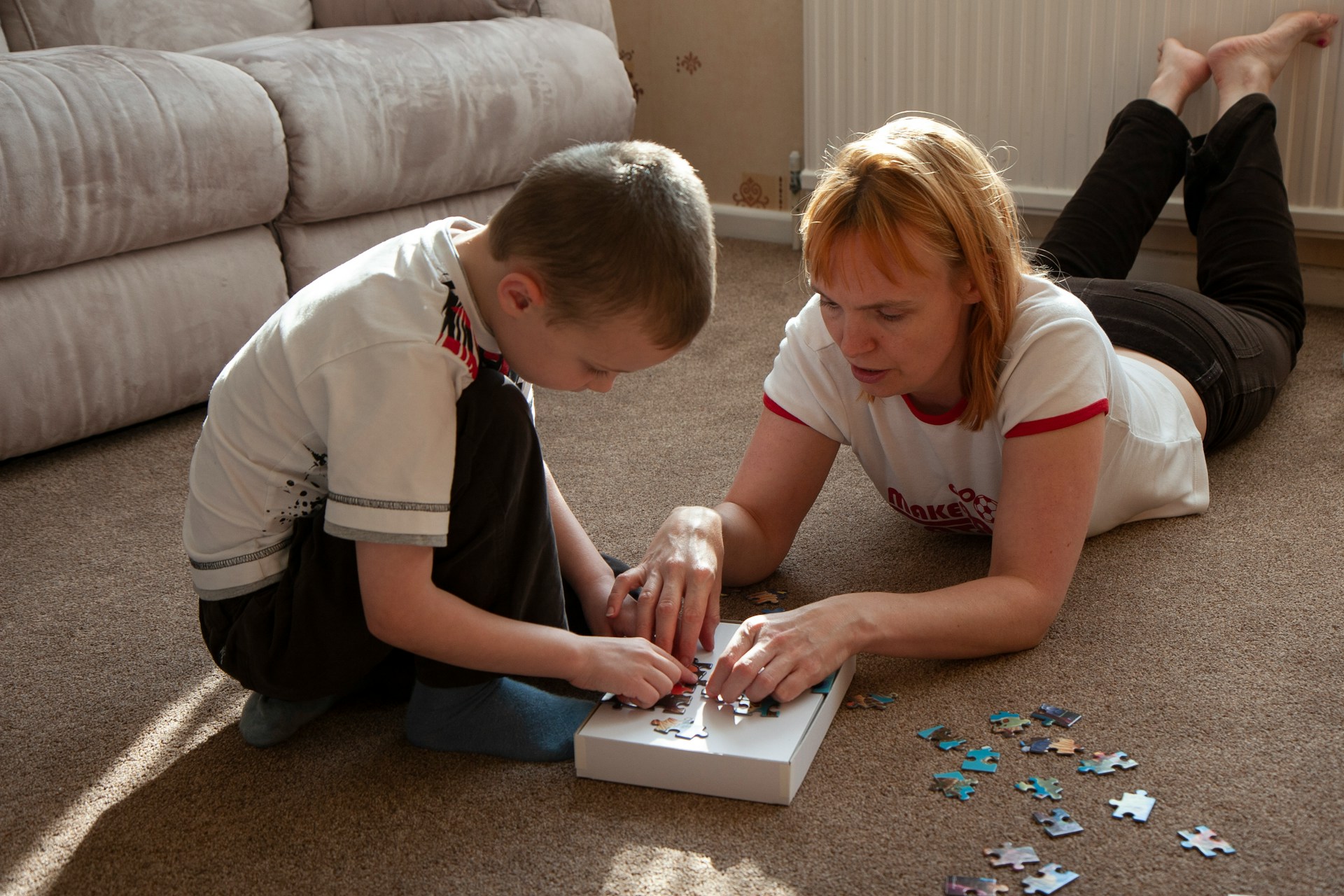
Is Young Sheldon Autistic
Exploring the Complexity Behind Young Sheldon's Character
Understanding Sheldon's Traits and Their Connection to Autism
The character of Sheldon Cooper in 'The Big Bang Theory' has sparked widespread discussions about autism spectrum disorder (ASD), neurodiversity, and representation in media. While Sheldon exhibits many behaviors associated with autism, he has not been officially diagnosed. This article delves into Sheldon's traits, how they compare to real autism, and the broader implications of his portrayal.
Sheldon's Traits and Behaviors: A Reflection of Autism Spectrum Characteristics
What are Sheldon's traits and behaviors that suggest autism, and how do they relate to real autism spectrum disorder (ASD)?
Sheldon Cooper from The Big Bang Theory is often discussed in relation to autism spectrum disorder (ASD), though he has not been officially diagnosed. Many of his traits closely resemble ASD characteristics. For example, Sheldon struggles with understanding social cues, making it difficult for him to interpret others’ emotions and social interactions.
He also demonstrates literal thinking, often taking language at face value and missing sarcasm or irony. This reflects common challenges faced by many autistic individuals. Sheldon’s intense interests in science, comic books, and video games exemplify obsessive focus and deep engagement with specific topics, which are typical in ASD.
Sensory sensitivities are evident in his reactions to loud noises, certain textures, and overstimulation in noisy environments. Additionally, Sheldon prefers routines and predictable schedules, showing discomfort when these are disrupted.
While Sheldon exhibits many behaviors associated with ASD, it is important to note that he has not been formally diagnosed. The portrayal has sparked discussions about autism and helped increase awareness. However, critics argue that presenting Sheldon’s behaviors as literal representations of autism risks oversimplifying the condition.
Ultimately, Sheldon’s character serves as a nuanced example that highlights both the traits and the complexities of neurodiversity, though it is essential to distinguish between fictional portrayal and clinical diagnosis.
| Trait | Description | Related ASD Feature |
|---|---|---|
| Social Difficulties | Struggles with interpreting social cues and norms | Difficulties in social communication |
| Routines and Rituals | Preference for predictable routines and structure | Repetitive behaviors, need for sameness |
| Intense Focus | Deep interest in specific subjects like science, comics | Obsessive interests; hyper-focus |
| Sensory Sensitivity | Reactions to loud noises and textures | Sensory processing issues |
| Literal Thinking | Misunderstanding sarcasm or figurative speech | Challenges with abstract language |
This portrayal fosters awareness and understanding of some ASD traits, but it is vital to recognize the diversity and challenges faced by real individuals on the spectrum.
The Portrayal of Sheldon: Not Officially Diagnosed but Often Associated with Autism
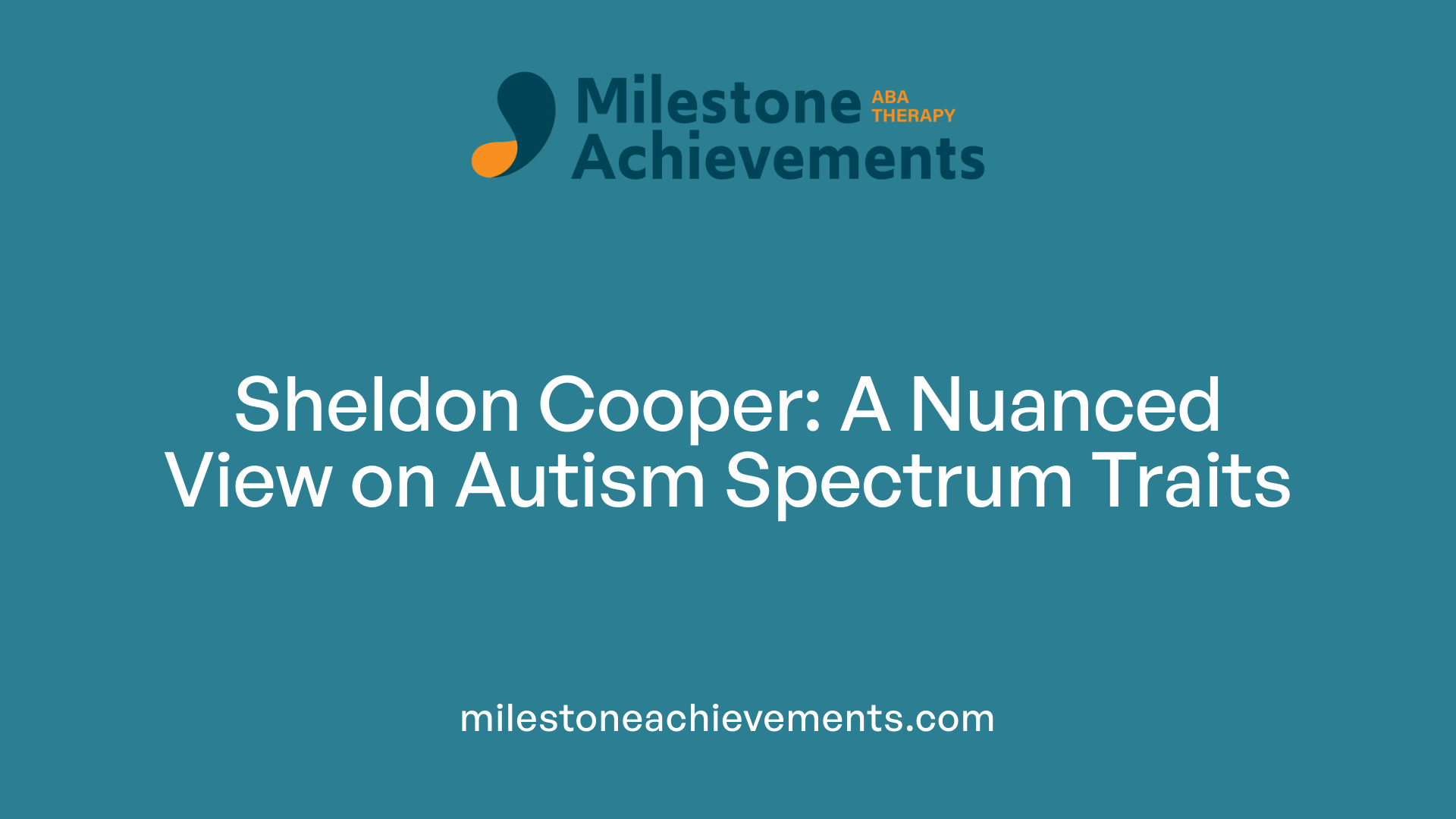
Is Young Sheldon portrayed as autistic in the show?
Sheldon Cooper, a main character in The Big Bang Theory and its prequel Young Sheldon, exhibits numerous traits typically linked with autism spectrum disorder (ASD). These include social difficulties, a strong preference for routines, intense interests, literal thinking, and sensitivities to sensory input. The show, however, does not explicitly state that Sheldon is autistic.
Creators and actors have emphasized that his character was not intentionally designed as an autistic individual. Co-creator Bill Prady mentioned that Sheldon was not developed with direct reference to Asperger’s syndrome, which is a form of high-functioning autism. Actor Jim Parsons believes Sheldon
Differentiating Autism Traits from Giftedness in Sheldon's Character
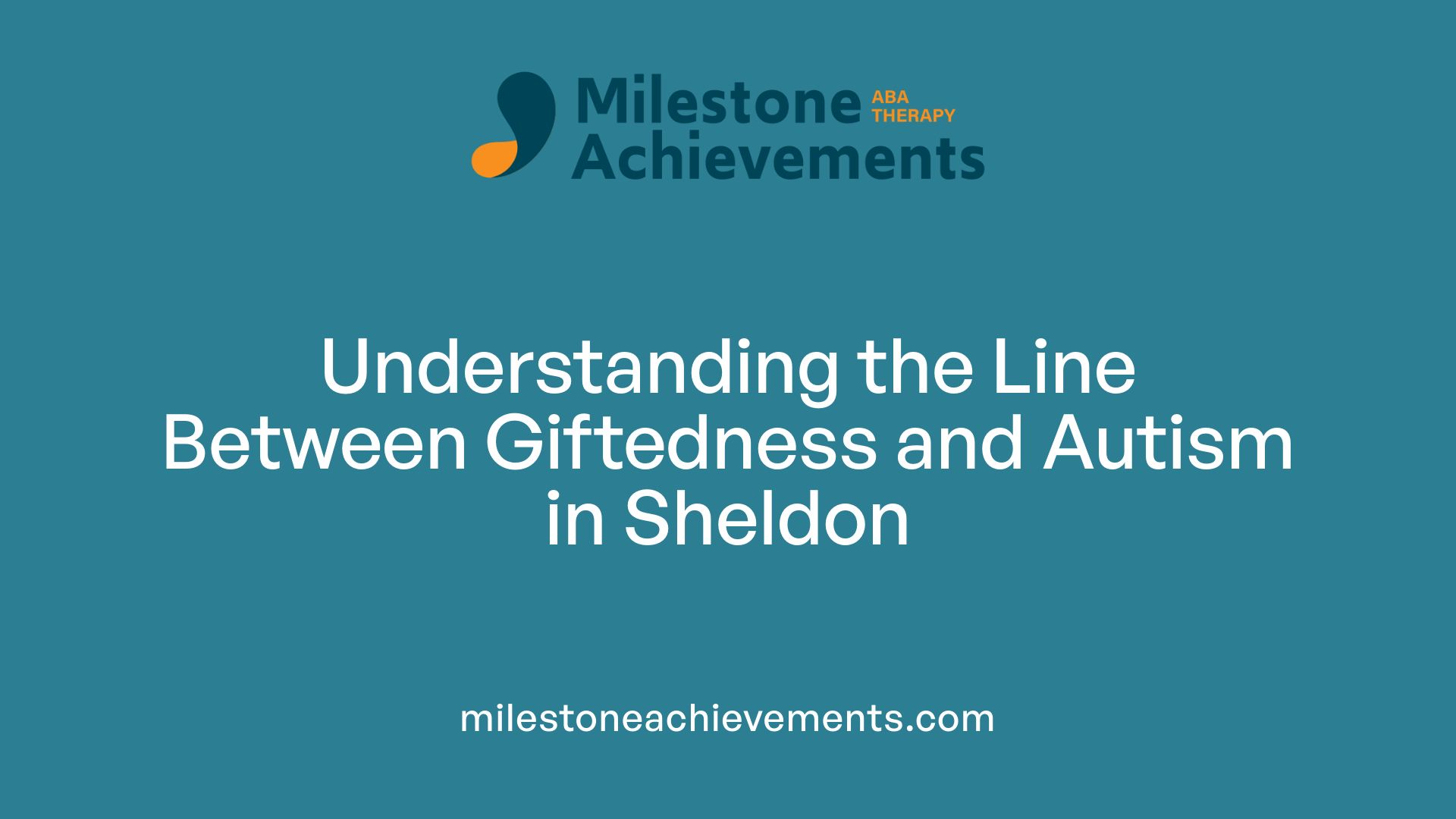 Sheldon Cooper's character in The Big Bang Theory showcases a combination of traits that often lead to misconceptions about autism spectrum disorder (ASD). His strict routines, difficulty with social cues, intense interests, sensory sensitivities, and emotional detachment are traits associated with autism. For example, Sheldon insists on sitting in the same spot every day, struggles to understand sarcasm, and reacts strongly to loud noises or chaotic environments. These behaviors mirror core autism characteristics, highlighting how Sheldon experiences the world differently.
Sheldon Cooper's character in The Big Bang Theory showcases a combination of traits that often lead to misconceptions about autism spectrum disorder (ASD). His strict routines, difficulty with social cues, intense interests, sensory sensitivities, and emotional detachment are traits associated with autism. For example, Sheldon insists on sitting in the same spot every day, struggles to understand sarcasm, and reacts strongly to loud noises or chaotic environments. These behaviors mirror core autism characteristics, highlighting how Sheldon experiences the world differently.
However, Sheldon’s exceptional intellectual abilities distinctly set him apart from typical autism traits. His high intelligence and love for scientific pursuits are signs of giftedness rather than autism. Sheldon is a child prodigy in physics, often outsmarting his peers and engaging in complex problem-solving skills.
While overlaps can exist—some autistic individuals are also gifted—it is important to distinguish between the two. Autism involves social, behavioral, and sensory differences, which Sheldon clearly displays. His obsession with routines and difficulty in social interactions are typical autism-like traits. Conversely, his extraordinary academic talent exemplifies giftedness.
Understanding this distinction helps clarify Sheldon's character. His traits are a blend of high intelligence with behaviors that some mistakenly associate with autism. Yet, it is crucial to recognize that Sheldon is a fictional character, and the portrayal simplifies or exaggerates certain traits for comic effect. This portrayal influences public perceptions but does not replace clinical assessments.
In summary, Sheldon’s behaviors reflect a combination of intellectual brilliance alongside social and sensory differences. His character exemplifies how high intelligence can coexist with traits often mistaken for autism but does not fully encompass the complexities of a neurodevelopmental diagnosis.
Public and Critical Reception of Sheldon's Autism-Like Traits
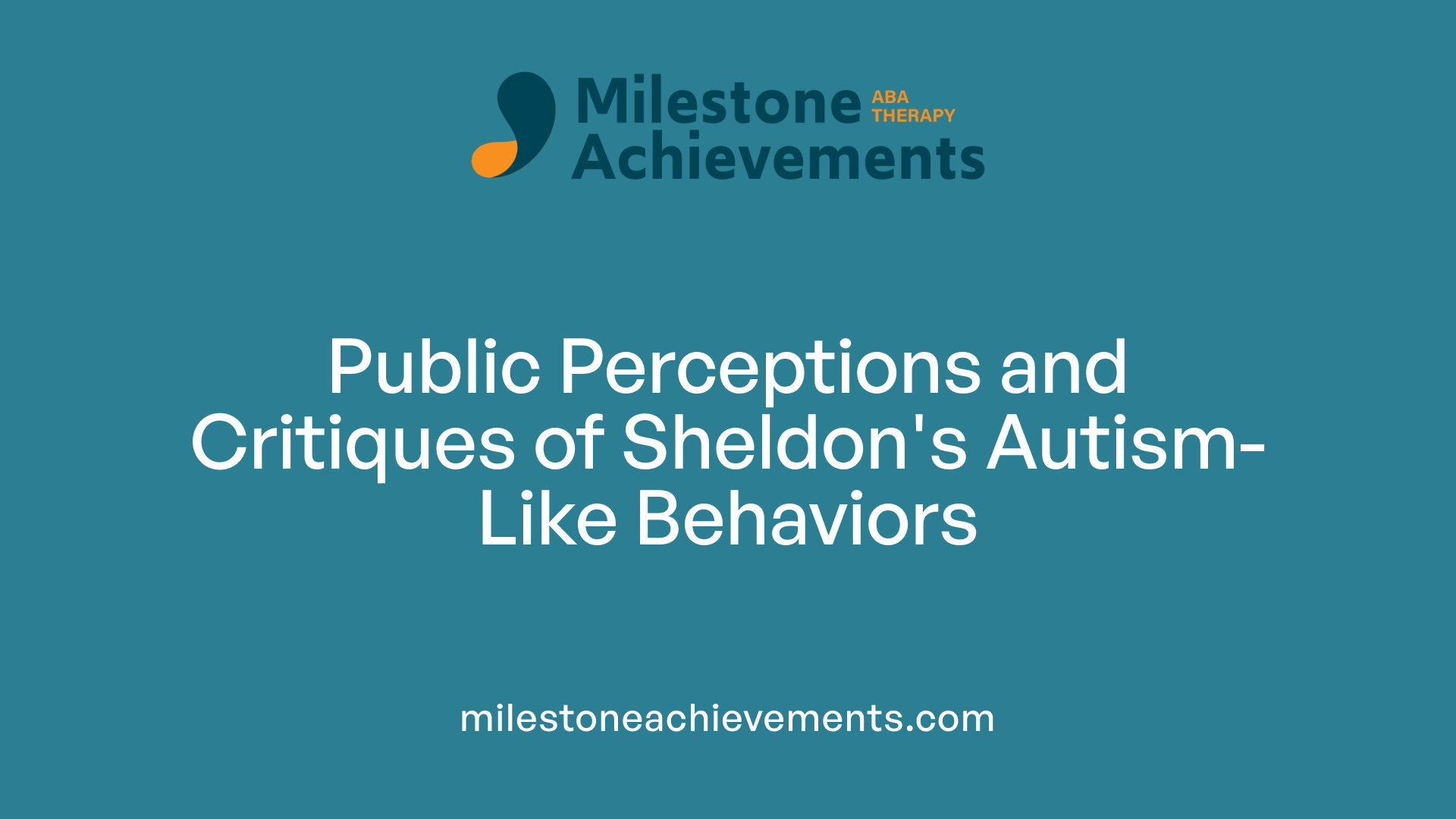 Audience perceptions of Sheldon Cooper’s behavior in The Big Bang Theory vary widely. Many viewers find his routines, social struggles, and intense focus amusing and endearing, often referring to his quirks as ‘cute autism.’ These traits have helped raise awareness of certain autistic behaviors in popular culture, fostering a broader understanding of neurodiversity.
Audience perceptions of Sheldon Cooper’s behavior in The Big Bang Theory vary widely. Many viewers find his routines, social struggles, and intense focus amusing and endearing, often referring to his quirks as ‘cute autism.’ These traits have helped raise awareness of certain autistic behaviors in popular culture, fostering a broader understanding of neurodiversity.
However, critics and members of the autism community have voiced concerns. Some argue that Sheldon’s traits are exaggerated or simplified, leaning heavily on stereotypes that don’t accurately reflect the diversity and depth of autistic experiences. The show never explicitly diagnoses Sheldon with autism, which further complicates the portrayal. His behavior is described as ‘Sheldony,’ a unique characterization that’s not meant to be representative of clinical autism.
The impact of Sheldon’s character extends to shaping public understanding of autism. While some appreciate the character for breaking social taboos and showing that people with behavioral differences can be successful, others worry that such portrayals can create misconceptions. Specifically, the depiction tends to omit the struggles faced by many on the spectrum, such as emotional meltdowns, social rejection, and mental health challenges.
As a result, many advocates call for more authentic portrayals of autism that include the full range of experiences, not just the positive or quirky aspects. The conversation continues about how media can responsibly represent neurodiversity, emphasizing respect, accuracy, and inclusiveness.
| Aspect | Perspective | Additional Notes |
|---|---|---|
| Audience reception | Largely positive, view as endearing, awareness-raising | Some see Sheldon as a positive example of neurodiversity |
| Critical opinions | Mixed, concerns about stereotypes, lack of diagnosis | Critics emphasize need for nuanced, authentic portrayals |
| Impact on understanding autism | Variable, influences misconceptions or awareness | Advocates push for truthful, comprehensive media representation |
In summary, Sheldon’s portrayal has sparked important dialogues about autism in the media. While it has increased visibility and understanding, critics urge a move toward portrayals that encompass the real struggles and diversity of autistic experiences.
Cultural and Media Influences on Sheldon's Character Development
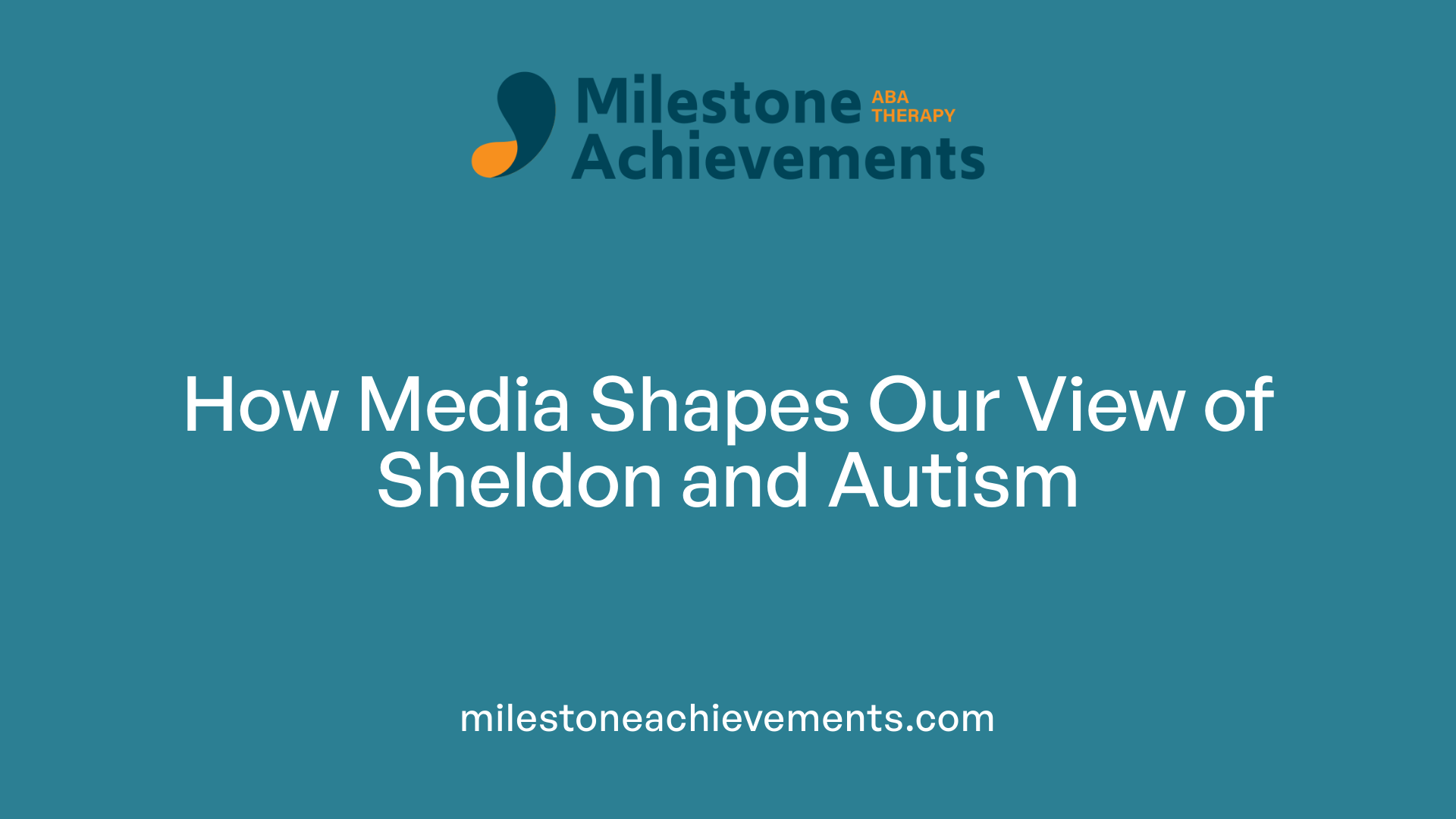 The character of Sheldon Cooper from "The Big Bang Theory" has often been linked to autism spectrum disorder (ASD), but his portrayal is complex and not rooted in a real diagnosis. Creators aimed to develop a personality that embodied certain traits often associated with high-functioning autism, such as obsessive behaviors, social difficulties, and hyper-focus. However, Bill Prady, co-creator of Sheldon, explicitly stated that Sheldon was not designed to represent autism or Asperger’s syndrome.
The character of Sheldon Cooper from "The Big Bang Theory" has often been linked to autism spectrum disorder (ASD), but his portrayal is complex and not rooted in a real diagnosis. Creators aimed to develop a personality that embodied certain traits often associated with high-functioning autism, such as obsessive behaviors, social difficulties, and hyper-focus. However, Bill Prady, co-creator of Sheldon, explicitly stated that Sheldon was not designed to represent autism or Asperger’s syndrome.
Jim Parsons, the actor who plays Sheldon, believes that the character distinctly showcases facets of Asperger’s, and his performance emphasizes these traits. Nevertheless, Parsons himself has noted that the character "couldn't display more facets" of Asperger’s, which illustrates how the actor perceives Sheldon’s personality as aligned with complex autism spectrum features.
Mayim Bialik, who plays Amy Farrah Fowler, has commented that all characters in the series, including Sheldon, likely exist somewhere on the neuropsychiatric spectrum. She acknowledges that Sheldon is often discussed in terms of autism or OCD, but emphasizes the fictional and exaggerated nature of these traits.
In terms of real-life inspiration, Sheldon was partly based on a real person — Parsons’ nephew, Michael Pruski. Parsons shared a video of his young nephew with the show's creators, which helped in creating a character with a certain intellectual and behavioral profile. However, the stories, family interactions, and specific events in the show are fictional, with no direct correlation to the actual lives of individuals with autism.
Do these portrayals accurately reflect real autism?
While some traits depicted in Sheldon align with common autism characteristics, researchers and advocates argue that the show's portrayal simplifies and sanitizes what living with autism can entail. Real autism often involves significant challenges, including emotional meltdowns, social rejection, and suffering, which are rarely acknowledged in fictional portrayals like Sheldon.
How do creators and actors view Sheldon's character?
Bill Prady has clarified that Sheldon was not meant to be an autism diagnosis but rather a unique character with his own quirks. Jim Parsons considers Sheldon a complex portrayal that highlights various
The Need for Authentic Representation of Autism in Media
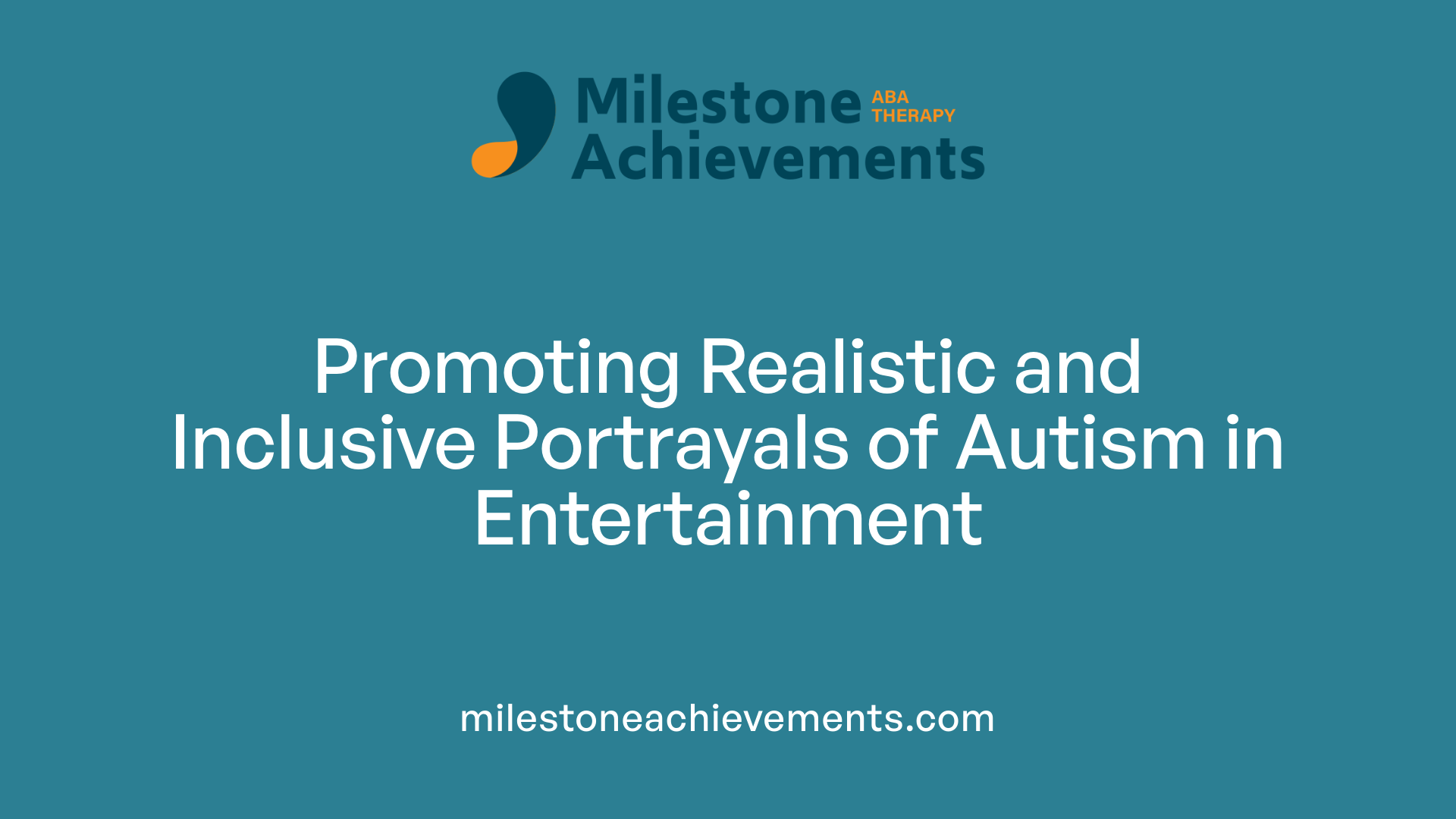
What are the challenges faced by autistic individuals?
Many autistic individuals encounter significant obstacles, including communication difficulties, sensory sensitivities, social rejection, anxiety, and emotional regulation issues. While some may have exceptional talents, these positive traits do not negate the real struggles faced daily.
How are autism traits often sanitized in fictional portrayals?
Many popular characters, like Sheldon Cooper from The Big Bang Theory, are depicted with behaviors that resemble autism but are often exaggerated or romanticized. Sheldon’s obsessive rituals, social awkwardness, and literal interpretation of language are sometimes labeled as 'cute autism.' Such portrayals tend to omit the intense challenges, emotional distress, and need for support that many autistic people experience.
Why is there a call for more nuanced portrayals?
Autistic characters like Julia from Sesame Street, Max Braverman from Parenthood, and Dr. Isidore Latham from Chicago Med offer more realistic depictions by showing sensory sensitivities, social difficulties, or communication differences. Advocates argue these portrayals genuinely reflect their experiences, promoting better understanding and acceptance. They emphasize the importance of including both the strengths and struggles of autistic individuals.
| Challenges Faced | Examples in Media | Real-Life Impact |
|---|---|---|
| Social difficulties | Sheldon Cooper's literal thinking | Misconceptions about autism |
| Sensory sensitivities | Julia's sensitivity to loud noises | Recognition of sensory needs |
| Emotional regulation | Max’s emotional reactions | Understanding support needs |
What is the difference between autism traits and gifts?
Autism traits include difficulties with social interaction, sensory sensitivities, and behavioral differences. Gifts, like high intelligence or exceptional skills, can coexist with these traits. However, it is essential to acknowledge that autism often involves significant challenges—such as emotional meltdowns or rejection—which are frequently overlooked in popular portrayals. Promoting authentic, multidimensional representations can foster greater empathy and support for those on the spectrum.
Conclusion: Navigating Realism and Stereotypes in Sheldon's Portrayal
Is Young Sheldon Autistic?
Sheldon Cooper, a central character in "The Big Bang Theory," exhibits numerous traits often associated with autism spectrum disorder (ASD). These include challenges with social interactions, a strong preference for routines, intense interests in specific topics, literal thinking, and sensory sensitivities. Viewers and critics have observed these behaviors closely.
However, the show's creators explicitly state that they did not set out to diagnose Sheldon with autism. They developed his character based on a unique personality known as "Sheldony," emphasizing quirks rather than medical diagnoses. Despite this, Jim Parsons, the actor who portrays Sheldon, acknowledges that Sheldon’s behaviors mirror many autism traits.
Fans and mental health advocates see Sheldon's character as a positive representation that brings attention to neurodiversity. His traits foster empathy and understanding of the strengths and difficulties faced by individuals on the spectrum. Nevertheless, it’s important to distinguish between fictional stereotypes and real-world experiences.
Overall, Sheldon is not officially diagnosed as autistic within the series, but his character embodies many typical ASD features, shedding light on how neurodiverse individuals may think, behave, and interact. This nuanced portrayal spurs conversations about authenticity and respect in media depictions of autism.
| Trait | Reflection in Sheldon Cooper | Notes |
|---|---|---|
| Social Difficulties | Yes | Avoids eye contact, awkward interactions |
| Routine Preference | Yes | Ritualistic behaviors, dislike for change |
| Intense Interests | Yes | Passionate about physics and comic books |
| Literal Thinking | Yes | Struggles with sarcasm and figurative language |
| Sensory Sensitivities | Implied | Discomfort in certain environments |
| Official Diagnosis | No | Creator’s intent, actor's perspective |
The Importance of Thoughtful Representation
Sheldon's character offers a complex mix of traits that mirror many aspects of autism spectrum disorder, but his portrayal remains unofficial and somewhat stereotypical. While he has helped bring neurodiversity into the conversation, it highlights the ongoing need for authentic, nuanced portrayals that respect the realities faced by autistic individuals. Moving forward, media creators and audiences alike should strive for representations that balance the recognition of unique strengths with an honest depiction of challenges.
References
- 10 TV Characters With Autism Spectrum Disorder
- The Problem with Sheldon Cooper and the "Cute Autism"
- Sheldon Cooper - Wikipedia
- Is Sheldon Cooper Autistic? Understanding His Character Traits
- Is Sheldon Cooper Autistic? Understanding His Character Traits
- Famous Characters with Autism: Sheldon Cooper | Blossom ABA
- Is Sheldon Cooper Autistic? A Closer Look | True Progress Therapy
- Autistic People are not a Joke: Portrayals of Autistic ... - Medium
- Is 'Young Sheldon' a True Story? How Jim Parsons' Nephew ...
- Is Young Sheldon based on a true story? - Dexerto


Partner with us on your child's journey
Milestone Achievements offers evidence-based ABA therapy to help children with autism reach their full potential. Together we’ll set meaningful goals and celebrate progress every step of the way.
Start ABA Services Today





